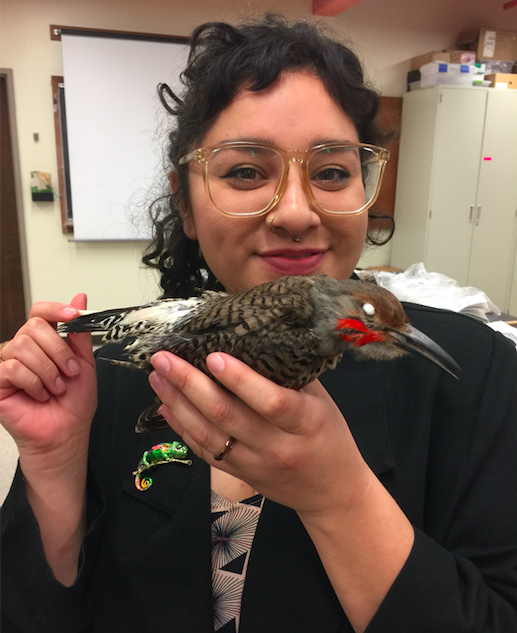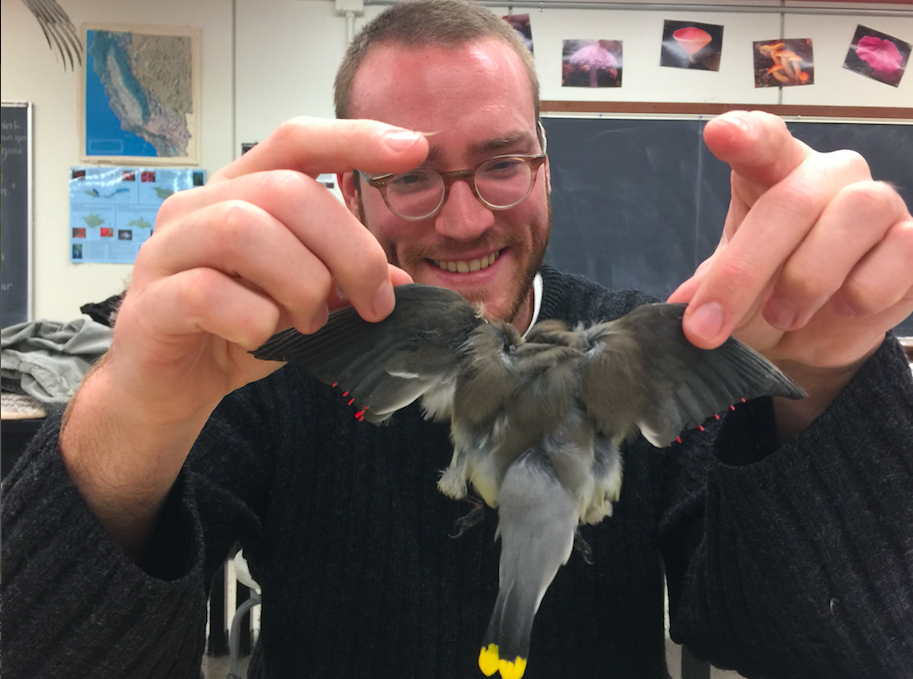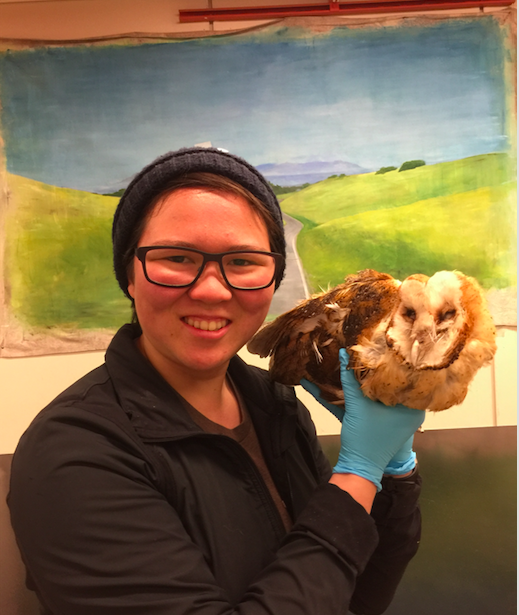By Luba Kaplanskaya
Dead birds that have been in a freezer for thirty years, sounds romantic. Taxidermy, the process of preserving an animal’s body, is valuable for education, research and outreach. The Norris Center runs a taxidermy internship led by the assistant director, Alex Krohn. Every quarter, Alex recruits a group of dedicated and brave interns to expand the Norris Center collection by cutting, cleaning, stuffing, and preparing specimens via taxidermy. I interviewed three interns that are currently preparing specimens for the Norris Center collection.

Why do you appreciate taxidermy?
“In a lot of ways, it’s like combining art and science together… Even in the wild, you can’t see animals this close. In the collection, you can measure it, really see it, and hold it.”
Is there an ideal person for this job?
Anyone can do this, even people without science or art backgrounds. People that are interested can jump right in and they’d probably enjoy it. I love the people that I work with and I love the community of the Norris Center.

What benefits have you gained by interning with the taxidermy group?
“I’ve met some pretty cool people doing this. And skill development. Having a steady hand with a scalpel, learning the right balance between gentle and rough. Patience too.”
What is your least favorite part?
“The variability in the conditions that we get of the specimens. Pretty often the birds are unsalvageable, and some specimens have been in the freezer for 30 years. We can’t control the conditions of the specimens since most of them we get as donations. People find them and have no idea what the cause of death was.”

It’s your very first day at the internship, how do you feel?
“I was surprised and impressed that they trusted us interns with such responsibility. It’s very engaging, they have us working hands on with the specimens. I wasn’t scared, I was excited, even though I haven’t done a dissection since middle school. When I started working on the owl, it was confusing, it’s like a puzzle. I love working on puzzles. And, I wouldn’t say it’s disgusting, it’s maybe not the prettiest job out there.”
What significance do you see in this?
“I find that birds are a very important aspect to the environment. They’re some of the most visible animals that people tend to see. Knowing this new knowledge about birds has strengthened my appreciation for them. Plus, I love a challenge. I think everything I do should be a challenge”
If you are a student who would like to do a taxidermy internship in the spring, please contact Alex Krohn at arkrohn@ucsc.edu.
